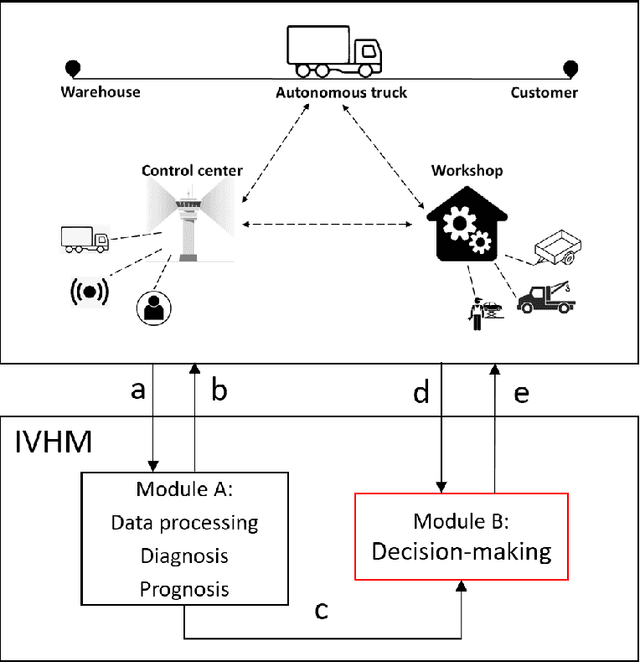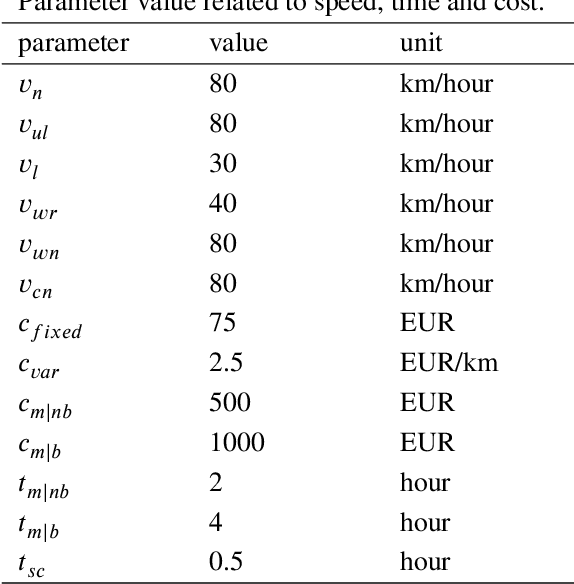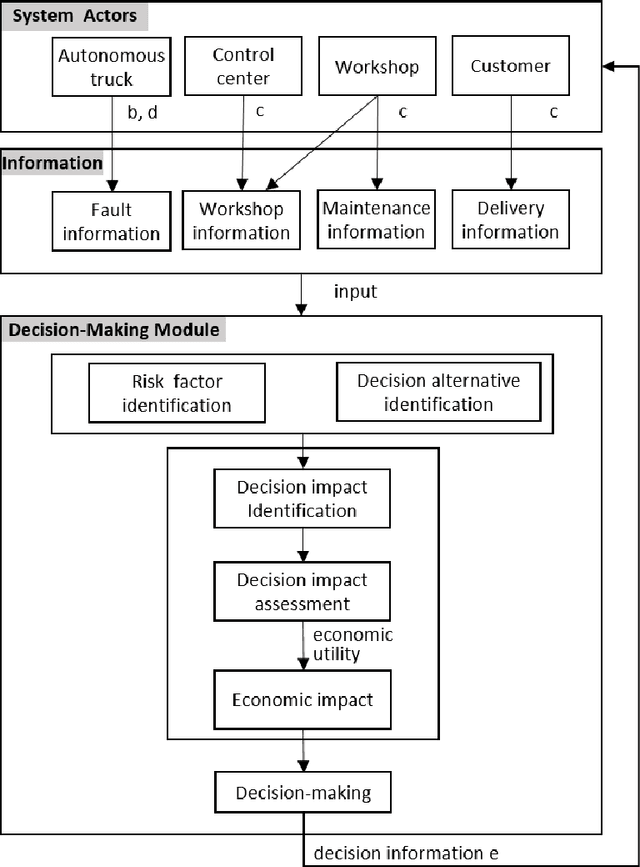Håkan Warnquist
Short-term Maintenance Planning of Autonomous Trucks for Minimizing Economic Risk
May 28, 2021



Abstract:New autonomous driving technologies are emerging every day and some of them have been commercially applied in the real world. While benefiting from these technologies, autonomous trucks are facing new challenges in short-term maintenance planning, which directly influences the truck operator's profit. In this paper, we implement a vehicle health management system by addressing the maintenance planning issues of autonomous trucks on a transport mission. We also present a maintenance planning model using a risk-based decision-making method, which identifies the maintenance decision with minimal economic risk of the truck company. Both availability losses and maintenance costs are considered when evaluating the economic risk. We demonstrate the proposed model by numerical experiments illustrating real-world scenarios. In the experiments, compared to three baseline methods, the expected economic risk of the proposed method is reduced by up to $47\%$. We also conduct sensitivity analyses of different model parameters. The analyses show that the economic risk significantly decreases when the estimation accuracy of remaining useful life, the maximal allowed time of delivery delay before order cancellation, or the number of workshops increases. The experiment results contribute to identifying future research and development attentions of autonomous trucks from an economic perspective.
 Add to Chrome
Add to Chrome Add to Firefox
Add to Firefox Add to Edge
Add to Edge